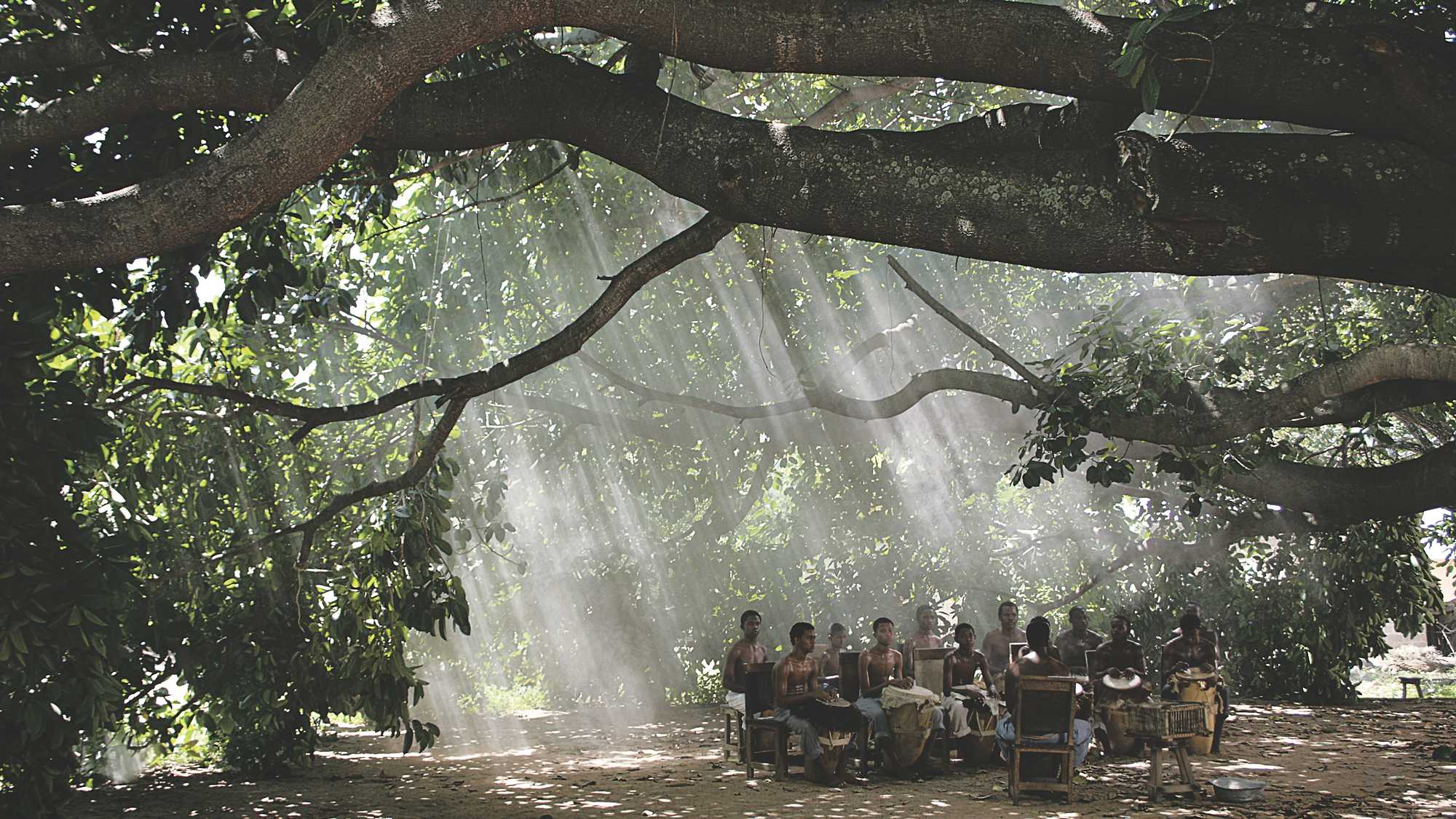The wild splendours of the Colombian landscape form a spectacular backdrop for the odyssey of a tough old accordion player and a young wannabe musician. “Deeply affecting and boldly unsentimental.” — Macleans

Heartfelt without ever becoming sentimental, [it] has a pure and honest simplicity that makes it wonderfully compelling.
Screened as part of NZIFF 2010
The Wind Journeys 2009
Los viajes del viento
The wild splendours of the Colombian landscape form a spectacular, sentient backdrop for the cross-country odyssey of Ignacio, a tough old accordion player who has resolved to retire and return his instrument to his mentor. Fermín, a young wannabe musician, doggedly follows along, determined to become his apprentice.
“Superbly directed by Ciro Guerra, this realist fable unfolds as an exhilarating mix of music, landscape and drama. Even simply as a travelogue, the film is a natural drama of exquisite beauty… As the lens reveals wild lands and cultures, villagers play themselves. But the story itself – told with spare dialogue, poetic visuals and vivid sound design – is deeply affecting and boldly unsentimental…
And the music! The movie is set in 1968, when accordion troubadours still roamed from village to village. Ignacio engages in fierce accordion duels that involve singing and declamatory freestyle singing. There’s a notion that the musician is possessed by his instrument, which has horns attached, and you can believe it, as if he’s playing, or being played by, the lungs of the devil, or a higher power… As the camera captures rhythms of light and shadow racing across the land, it’s as if the filmmaker is drawing music from the earth itself. This is a brilliant, beautiful work of pure cinema. Literally breathtaking.” — Brian D. Johnson, Macleans
“Paulo Andrés Pérez’s widescreen compositions often dwarf the characters in their sheer scale and grandeur, offering up the region’s desolate beauty as an object worthy of endless contemplation.” — Justin Chang, Variety